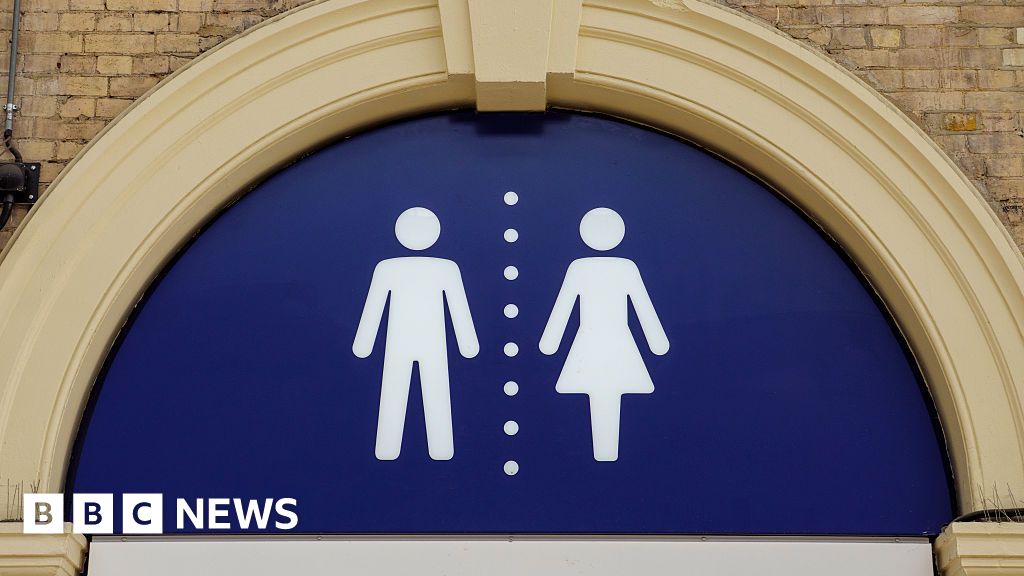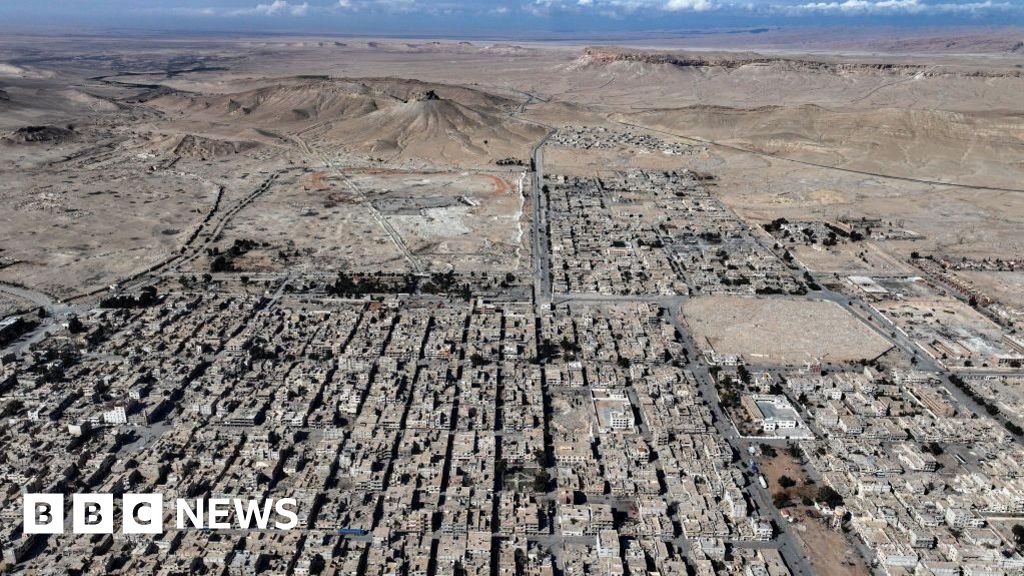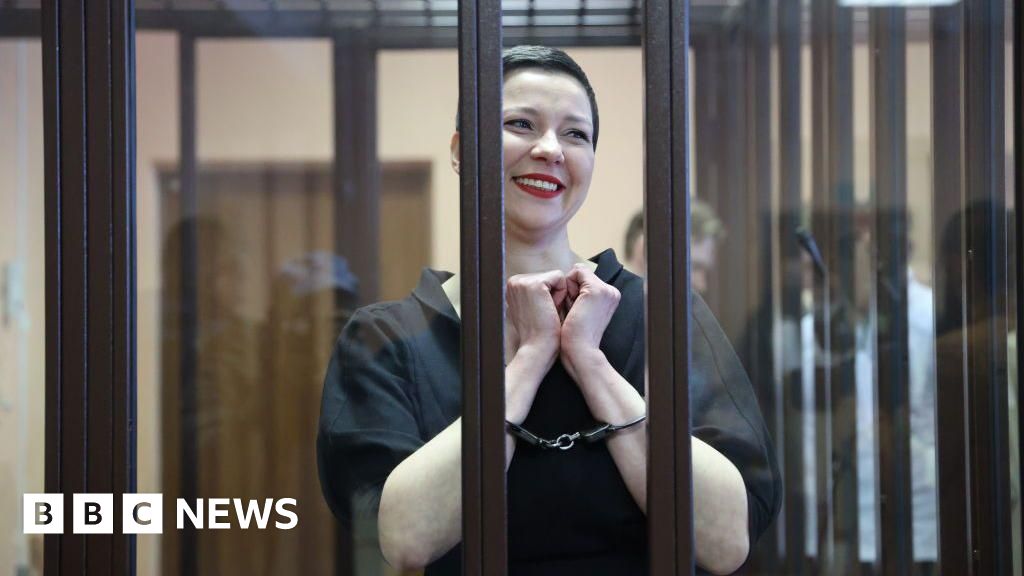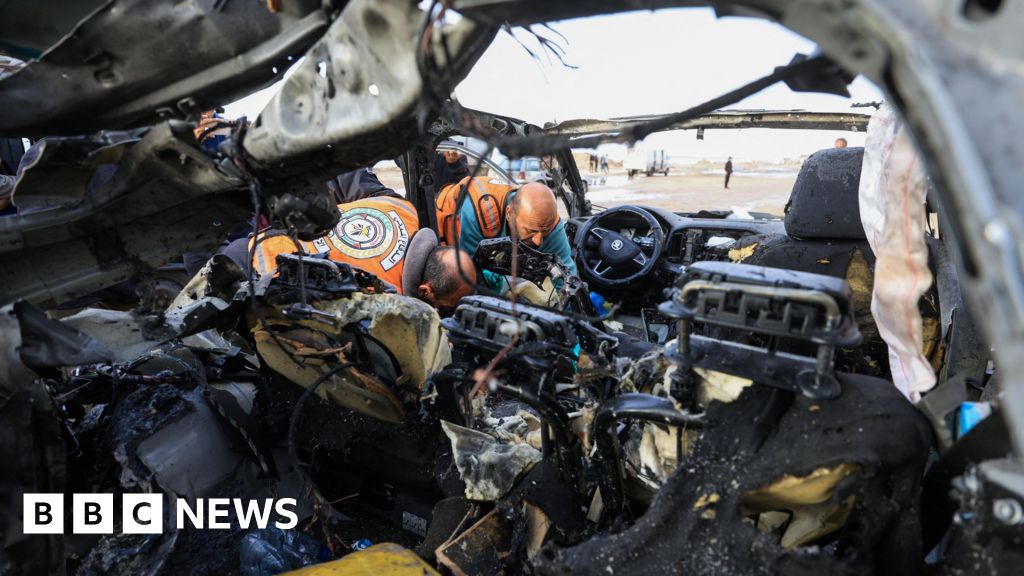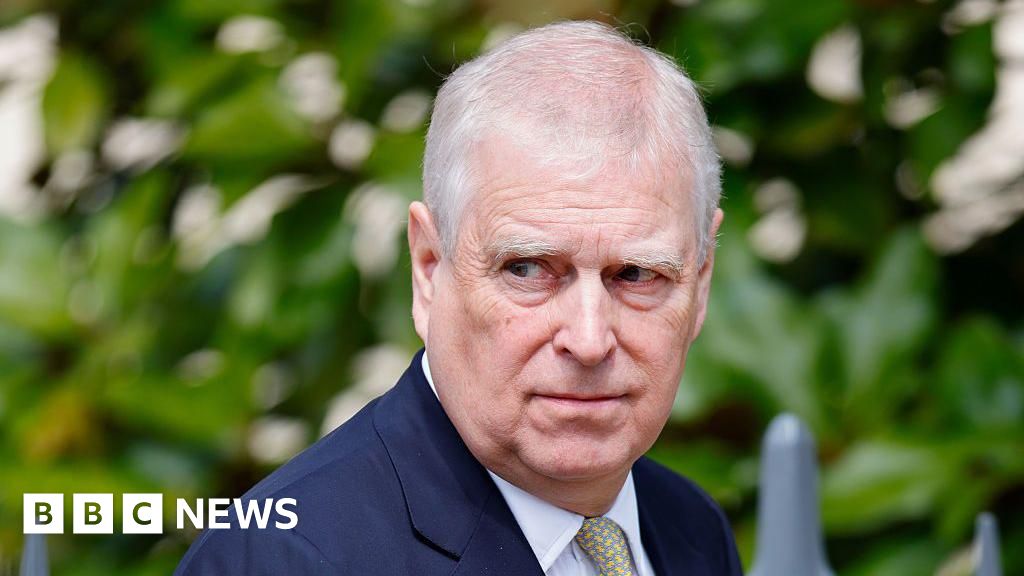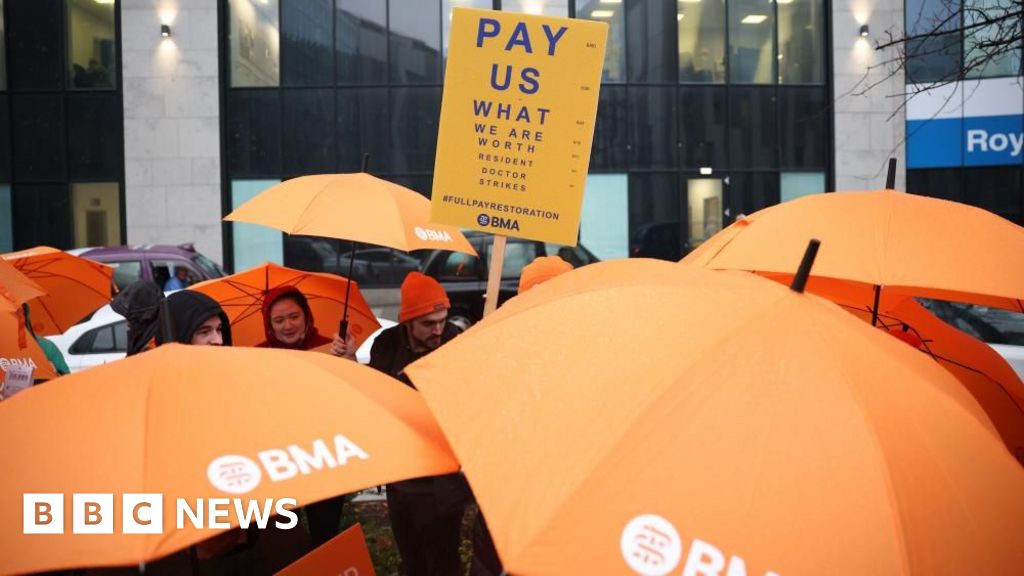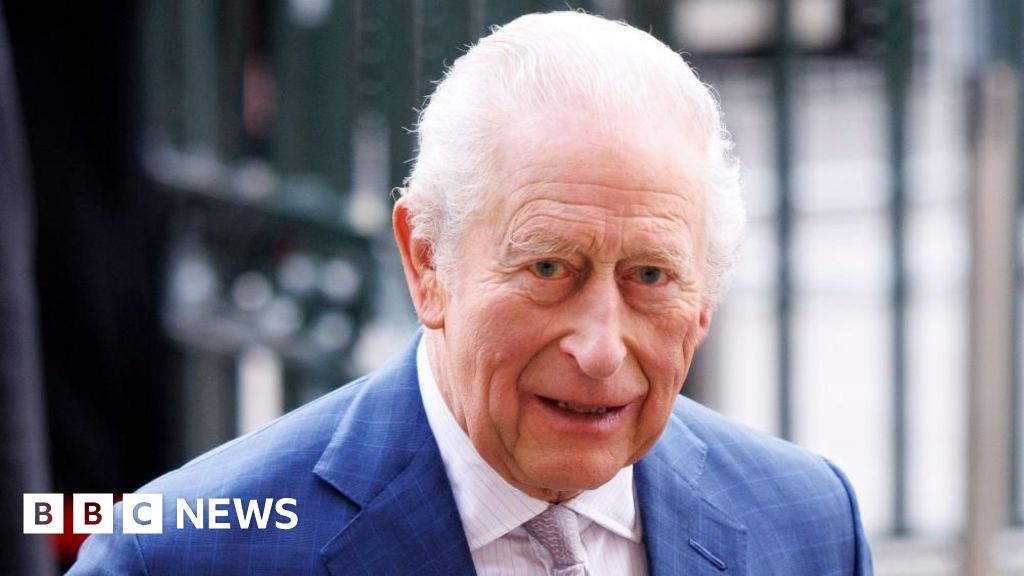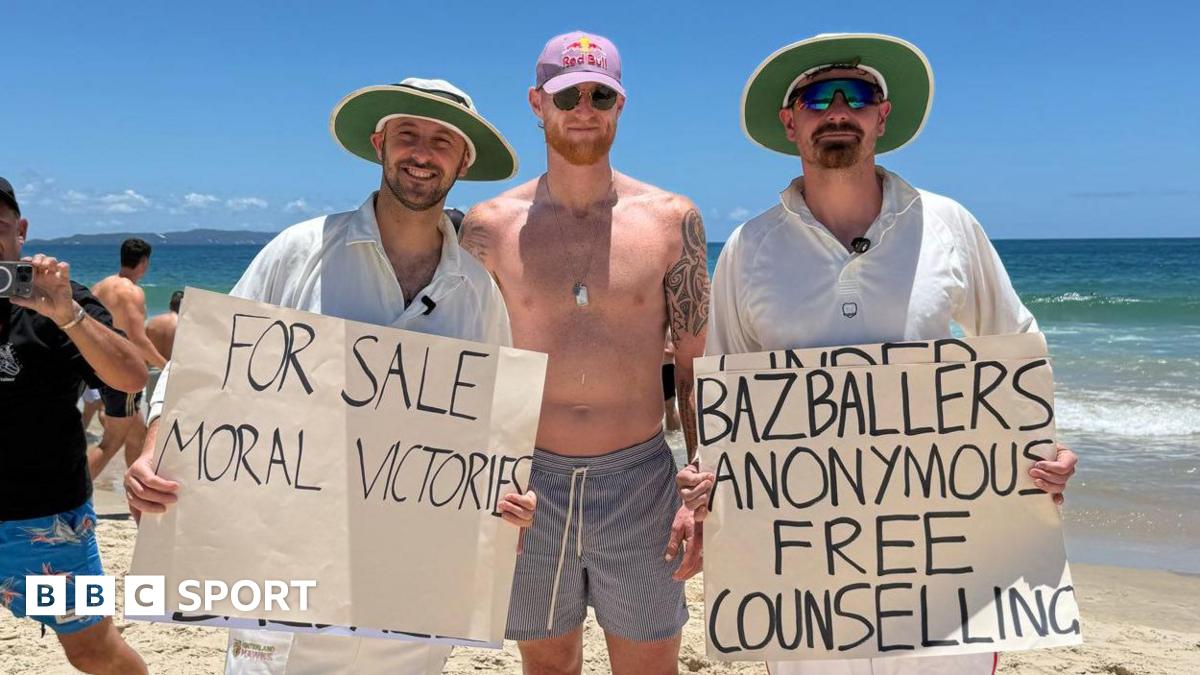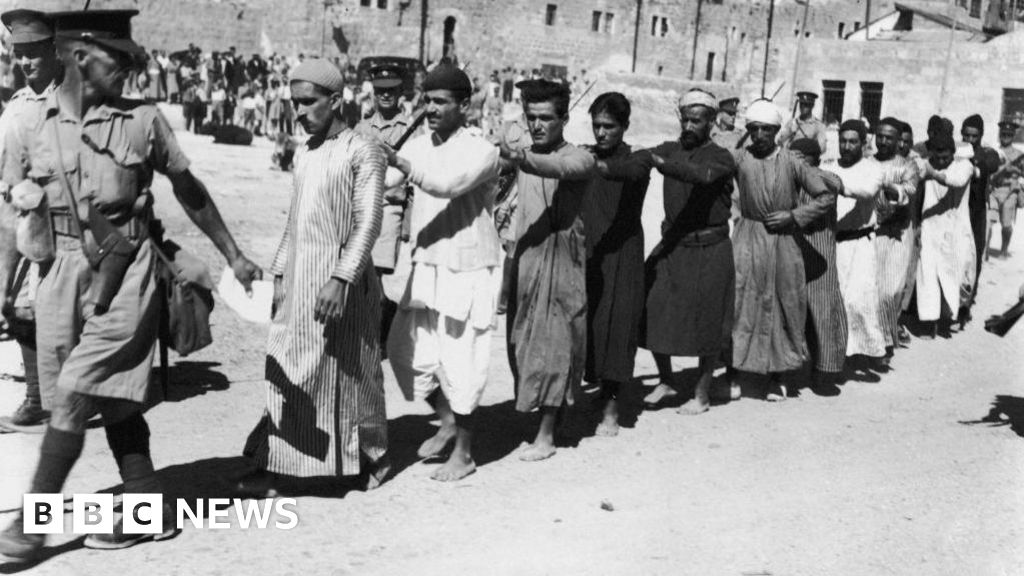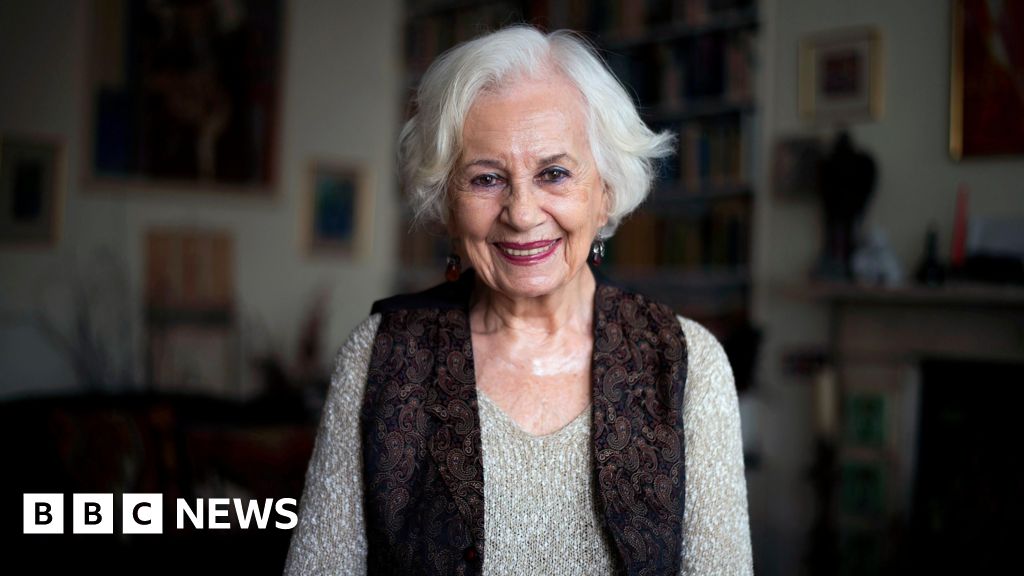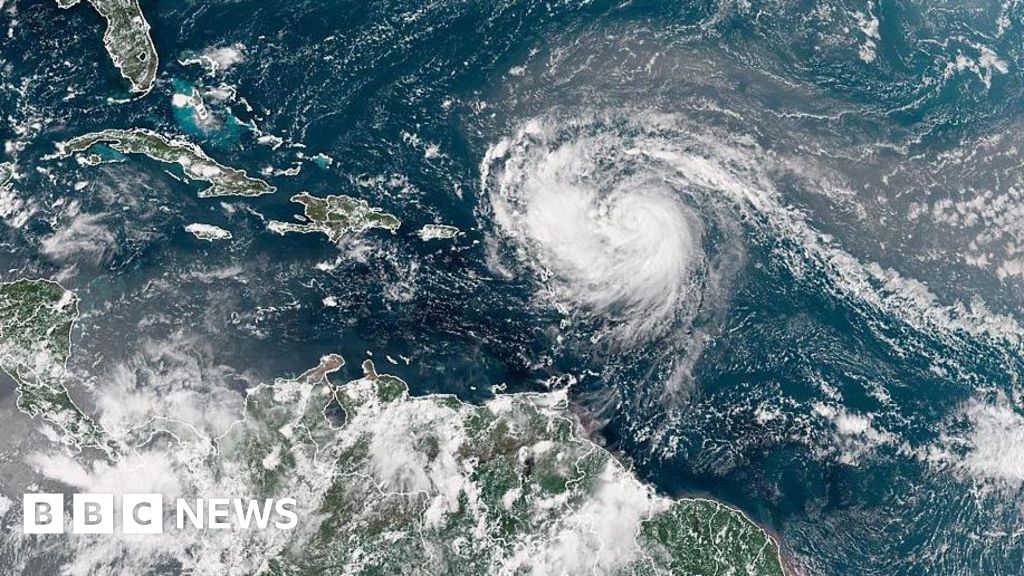
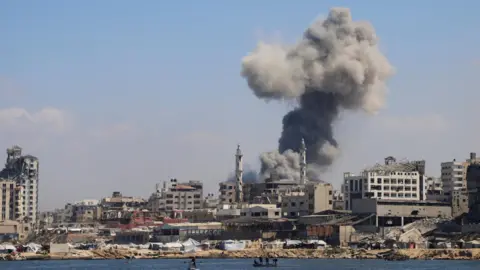 Reuters
Reuters
Israeli aircraft carried out strikes along Gaza City's Mediterranean coast on Thursday
The situation in Gaza City is "nothing short of cataclysmic", a UN official has told the BBC, as Israeli tanks and troops continue to advance on the third day of a ground offensive.
Olga Cherevko, a spokeswoman for the UN's humanitarian office, said she had seen a constant stream of Palestinians heading south during a recent visit to the city, but that hundreds of thousands remained.
The World Health Organization (WHO) warned that overwhelmed hospitals were on the brink of collapse because it was being prevented from delivering lifesaving supplies.
The Israeli military said its forces were "dismantling terror infrastructure and eliminating terrorists" in Gaza City.
It has said its objectives are to free the hostages still held by Hamas and defeat up to 3,000 fighters in what it has described as the group's "main stronghold".
However, the offensive on Gaza's biggest urban area, where one million people were living and a famine was confirmed last month, has drawn widespread international condemnation.
The UN and its humanitarian partners have recorded at least 200,000 people crossing from northern to southern Gaza since mid-August, when Israel announced its intention to conquer Gaza City. Around 55,000 have made the journey since Sunday.
Cherevko, who works for the UN humanitarian office in the central city of Deir al-Balah, told the BBC she travelled to Gaza City two days ago - a 29km (18 mile) round-trip that took 14 hours.
"The things there, and the scenes on the way to Gaza City, are nothing short of cataclysmic," she recalled.
"A constant stream of people [are] crossing from the north to the south, many on foot. Inside Gaza City, it's very crowded still because there are hundreds of thousands of civilians still remaining there."
She said she also witnessed multiple Israeli strikes "very close" to the UN convoy while in Gaza City, adding: "It was really just a constant hit after hit while we were there."
On Thursday morning, witnesses told Reuters news agency they had seen Israeli tanks in the northern Sheikh Radwan neighbourhood and the southern neighbourhood of Tal al-Hawa, which have come under heavy bombardment in recent days.
They also reported that Israeli forces had blown up remotely driven vehicles laden with explosives in both areas, destroying many houses.
Local hospitals said at least 14 people had been killed by Israeli fire across the Gaza Strip on Thursday, including nine in Gaza City.
The Israeli military said in a statement that its troops were "expanding" their operations in the city, without giving any details about their movements.
At the start of the ground assault on Tuesday, the military's chief of staff, Lt Gen Eyal Zamir, told troops to "intensify the blows against Hamas and to decisively defeat the Gaza City brigade, in order to carry out the most moral and important duty - the return of all the hostages home and the dismantling of Hamas's military and governing capabilities".
Cherevko warned that many people were unable to comply with the Israeli military's order to evacuate to its designated "humanitarian area" in the south.
"The expense of moving your belongings, if you are lucky enough to find a vehicle that will move them, is exorbitant. It's not affordable for many people. And that's why many are doing this on foot, with barely a mattress in their hands and maybe a plastic bag."
And once they arrived there were no guarantees of shelter or safety, she added.
"I spoke to a lot of people who have recently arrived in Deir al-Balah and [the southern city of] Khan Younis. Many of them are sitting on the side of the street, with nothing. They don't have any shelter. They don't know where to go.
"Yesterday, I met a family who had been walking around for four days, trying to find space to sleep and they didn't manage," she said.

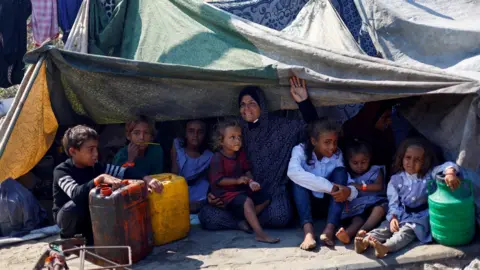 Reuters
Reuters
Many displaced families who have fled southwards are having to sleep on roadsides
The WHO's chief, Dr Tedros Adhanom Ghebreyesus, said the Israeli offensive was "forcing traumatised families into an ever-shrinking area unfit for human dignity".
"The injured and people with disabilities cannot move to safety, which puts their lives in grave danger," he wrote on X.
"Hospitals, already overwhelmed, are on the brink of collapse as escalating violence blocks access and prevents [the] WHO from delivering lifesaving supplies."
The UN says there are currently about 1,790 in-patient hospital beds for the 2.1 million population of Gaza, resulting in occupancy rates of 180 to 300% across the 17 hospitals that remain partially functional across the territory.
Ten of those hospitals are in Gaza City and one is elsewhere in northern Gaza.
On Tuesday, al-Rantisi children's hospital in Gaza City - the only specialised paediatric hospital left in the territory - was hit by three Israeli strikes, causing damage to rooftop water tanks, electrical and communication systems and some medical equipment, according to Gaza's Hamas-run health ministry.
Forty patients fled for safety following the attack, while 40 others, including four children in the intensive care and eight newborn babies, remain inside.
The Israeli military has not yet commented.
The UN Population Fund meanwhile warned that women were being forced to give birth in the streets, without hospitals, doctors or clean water.
The Israeli military launched a campaign in Gaza in response to the Hamas-led attack on southern Israel on 7 October 2023, in which about 1,200 people were killed and 251 others were taken hostage.
At least 65,141 people have been killed in Israeli attacks in Gaza since then, according to the territory's health ministry.
The ministry says another 435 people have so far died during the war as a result of malnutrition and starvation, including four over the past 24 hours.

 2 months ago
65
2 months ago
65


